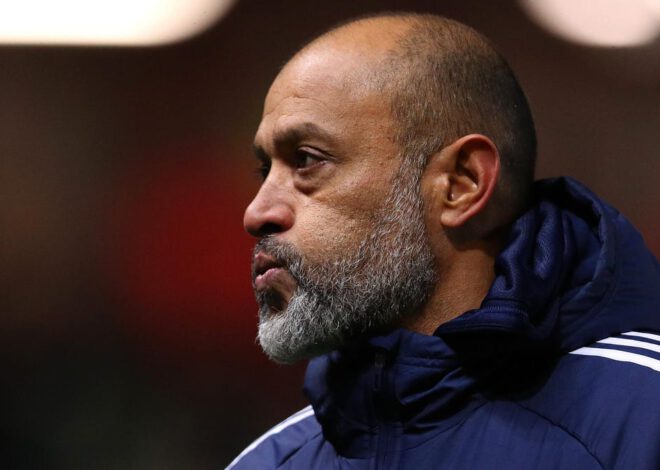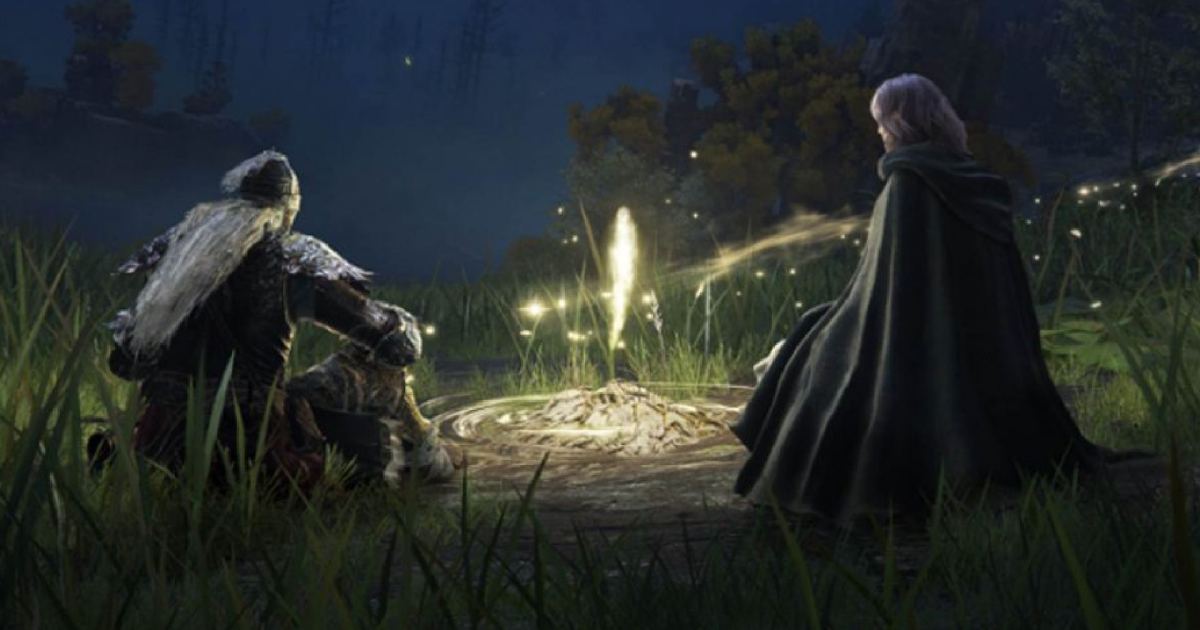
2022’s biggest games should learn this lesson from Elden Ring
As 2022’s biggest releases, Elden Ring and God of War: Ragnarok have been pitted against each other in just about every way this year. However, they couldn’t be more different in one key way. While Elden Ring wants its players to get lost in The Lands Between, God of War: Ragnarok (and many more of 2022’s biggest budget games) seem terrified of players missing a single piece of content.
Ragnarok, Horizon Forbidden West, and most other blockbuster game this year tended to hold players hands tighter than ever. That attitude stood in stark contrast with Elden Ring, which isn’t just OK with letting players miss out on massive amounts of content, but almost seems to want them to. This isn’t purely a critique on how Forbidden West has checklists and waypoints while Elden Ring doesn’t; those are just the symptoms of the bigger problem with modern game design.
As polished, well-crafted, and high-quality as these games are, the one lesson they could all stand to learn from Elden Ring is respecting players’ intelligence.
I wanna hold your hand
Hand-holding is a strong term, as it evokes the idea that players are treated like children who can’t cross the street on their own. But a lot of big-name games struggle to trust that players will follow their own curiosity and instincts — or just be OK with them if they don’t. That philosophy has led to a rise in components like waypoints, quest trackers, and NPCs saying, “hey, I think there’s something over here.” From an accessibility standpoint, those features are often necessary. Though when they’re the default and there’s not much option to toggle them off, it can change the mentality of a game overall.
A sidequest in Ragnarok can tell a great story — most do. However, they’re not our stories. It isn’t just the resolution that ends up being the same, but every step on the path to it. By now, most people will have heard the discourse, or simply experienced it for themselves, but this is where both Forbidden West and Ragnarok’s overbearing puzzle “hints” come in. These games don’t want there to be a chance that players get bored, stuck, or lost for even a moment and risk putting the game down. Even with options to turn down the frequency, they still tend to provide signposts for even the simplest solutions.
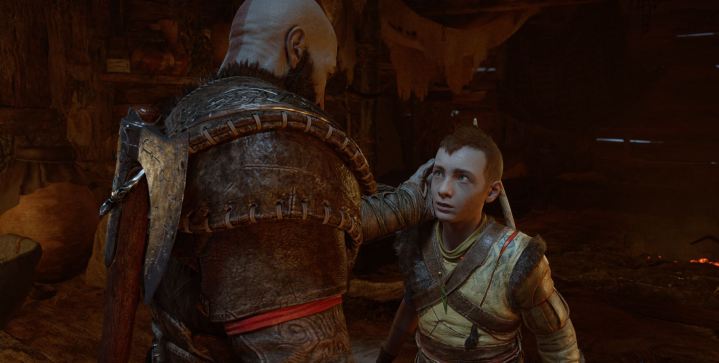 Image used with permission by copyright holder
Image used with permission by copyright holder
This isn’t exclusively a Sony first-party problem, though its most visible in its biggest releases. I’m hard-pressed to think of a big game from 2022 that doesn’t fall into these tropes of excessive hand-holding, from Pokémon to Ghostwire: Tokyo. Even purely linear games seem to be littered with big bright markers on doors, HUD elements pointing you in the right direction, text descriptions of exactly what your objective is and how to do it, or even all at once.
Modern games seem to have a severe lack of trust in players, which doesn’t leave much room for them to struggle and learn. By taking these opportunities away before I even have a chance to engage with what’s going on, I often feel pandered to. I’m following instructions at that point, not solving anything on my own.
Don’t tell me a story, give me a story to tell
That stands in stark contrast to the year’s best game, which has been hailed for bucking these trends altogether. Elden Ring isn’t a directionless game; it’s just one that wants you to find your own way through it. Though that method might not be for everyone, it can create unique experiences that reflect the special emergent quality of games.
Ten months ago, I had an moment in Elden Ring I can still instantly recall as one that exemplifies what the game does, in my mind, so much better than any other big-budget game released in 2022. I saw some kind of spirit or ghost — not at all an uncommon sight in Elden Ring — while treading through Liurnia for the first time. However, this ghost didn’t move with the erratic and twitchy tendencies of a human player. It glowed a pleasant orange and walked, or rather stumbled, away from me. Taking pride in the fact that I’d only ever fallen for the mimic trick once since my first playthrough of Dark Souls, I didn’t drop my guard just yet. Keeping a safe distance, I followed.
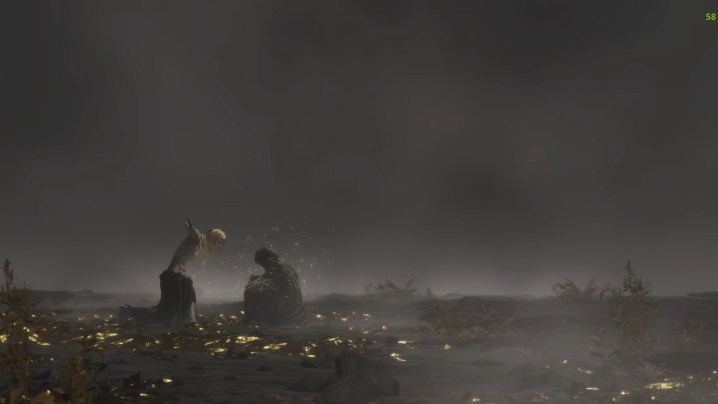 Image used with permission by copyright holder
Image used with permission by copyright holder
Finally, after being forced to confront the enemies it led me past and that I had initially avoided, we arrived at the base of a cliff wall. Was that it? Did this ghost simply take me here for nothing? It wouldn’t be the first trick like this that FromSoftware ever pulled, but I couldn’t accept that. When the spirit finally stopped, between the bushes and rocks, I spotted it: A cave almost impossible to see from a distance. I readied myself and entered to see what next awaited me. It was an organic series of events that felt like my own unique war story I could tell other players.
I didn’t have those moments in many other big games this year. Just last month, I did a sidequest in Ragnarok where I tracked an objective given to me automatically during the story, followed the waypoint to the location, had a fight or two and solved a puzzle, and then went on with my life. It doesn’t matter which quest I’m talking about, because there’s no story worth telling. You either had the exact same experience with it as me, or just chose not to do it.
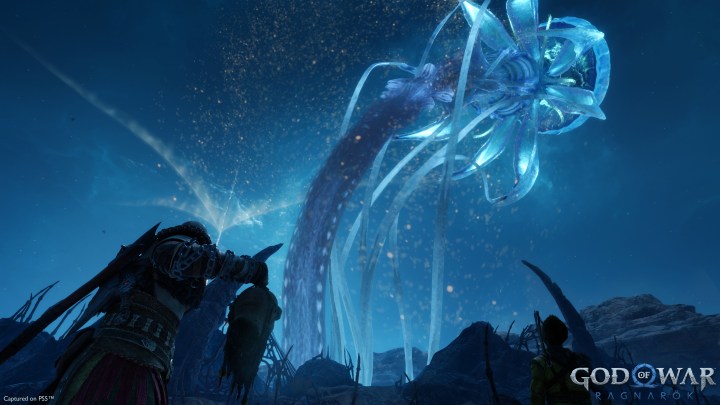 Image used with permission by copyright holder
Image used with permission by copyright holder
I was left imagining what my journey would have been like if I had naturally arrived at Ragnarök’s early quest involving freeing a creature in the desert, with my only clue to its whereabouts being Atreus saying he heard something in pain in the storm. I picture what it would have felt like to follow my instincts, brave the sandstorm to follow the sound, and happen upon that cave myself. I yearned for that sense of wonder and delight I would have felt upon seeing that massive mythical jellyfish. Instead, I was left feeling like the developers were worried I’d miss a piece of content that it spent a lot of money and energy on.
Hand-holding like this goes against what makes games unique as a storytelling medium. Not every game needs to function this way, but open-world titles especially present an opportunity for players to actually play a role in crafting a unique experience — and that’s getting harder to find. God of War Ragnarok is a finely crafted game worthy of the praise its received, but I know I’ll likely never play it again unless I want to experience the exact same story.
Ragnarok feels like rewatching a favorite movie; Elden Ring lets you direct one yourself.

